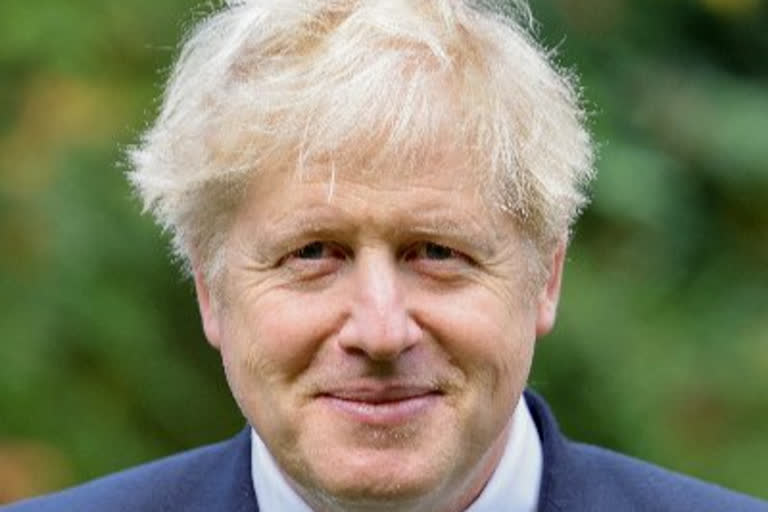London: British Prime Minister Boris Johnson on Wednesday announced his government's decision to lift all the additional restrictions imposed to contain the spread of the Omicron, including mandatory wearing of face masks anywhere, from next Thursday after analysis showed that the new variant of COVID-19 has now most likely peaked in the country.
This means people in England will no longer be told to work from home where possible and mandatory COVID-19 vaccine certification required for large venues will also come to an end.
The government will also no longer mandate the wearing of face masks anywhere, relying on the judgment of the public instead, while compulsory face masks in school classrooms will be scrapped sooner from this week itself.
Johnson told the House of Commons that the latest Office for National Statistics (ONS) analysis shows that Omicron has now most likely peaked in the country, allowing for a move back to so-called Plan A or minimum COVID restrictions.
'Today's latest ONS data show clearly that infection levels are falling in England and while there are some places where cases are likely to continue rising, including in primary schools, our scientists believe it is likely that the Omicron wave has now peaked nationally,' Johnson said.
Also Read: Did UK PM attend a party during lockdown? Parliament test might reveal
So, this morning, the Cabinet concluded that because of the extraordinary booster campaign, together with the way the public have responded to the Plan B measures, we can return to Plan A in England and allow Plan B regulations to expire. As a result, from the start of Thursday next week mandatory certification will end. Organisations can, of course, choose to use the NHS COVID pass voluntarily but we will end the compulsory use of COVID status certification in England, he said.
He pointed to ongoing significant pressures on the National Health Service (NHS), especially in the north east and north west, but noted that hospital admissions have now stabilised, with admissions in London even falling.
The numbers in intensive care not only remain low but are actually also falling," added Johnson.
England had moved to the so-called Plan B measures on December 8, 2021, at the peak of the Omicron surge. Other devolved parts of the United Kingdom follow roughly similar guidelines on COVID restrictions.
In the country at large, we will continue to suggest the use of face coverings in enclosed or crowded places, particularly where you come into contact with people you don't normally meet. But we will trust the judgment of the British people and no longer criminalise anyone who chooses not to wear one, said Johnson.
As we return to Plan A, the House will know that some measures still remain, including those on self-isolation. In particular, it is still a legal requirement for those who have tested positive for COVID to self-isolate, he noted.
Since Monday, the self-isolation period has been cut from seven to five days, with two negative rapid lateral flow tests required on days five and six. Johnson held out the hope that the time to remove the legal requirement to self-isolate altogether is also around the corner by March, just as we don't place legal obligations on people to isolate if they have flu.
PTI



